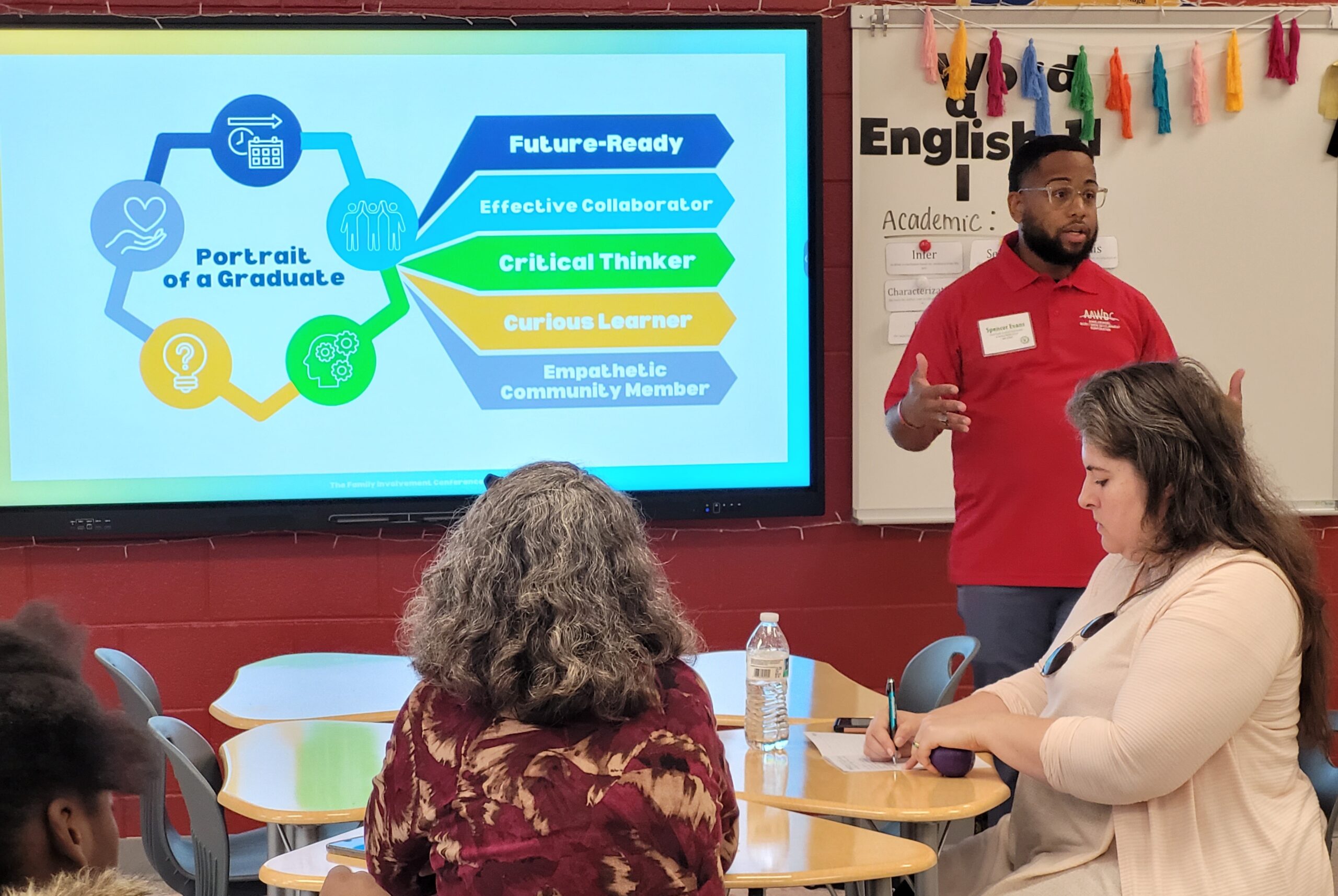AACPS led the Family Involvement Conference at Severn Run High School on November 9th. Families attended workshops on “Classrooms Today, Careers Tomorrow,” to understand how to support their children in preparing for careers. Nathalie Shaw, the Counseling Department Chair at Corkran Middle School, and Spencer Evans, Corkran’s Career Coach, presented “Bridging Dreams: Family Support in Student Career Development.” Their presentation covered five points:
The Counseling and Career Coach departments collaborate to ensure students are college and career ready by focusing on developing certain techniques in each grade. In sixth grade, students build confidence and life-skills through GRIT, influences, critical thinking, conflict resolutions, self-advocacy, and self-reflection as they transition from elementary school. Seventh graders learn about their interests, conflict resolution, teamwork, and financial literacy to begin self-discovery and self-awareness. Students in eighth grade expand on skills learned in 6th and 7th grade to prepare for high school with heavy career exploration to learn about specialty programs, career preparation, and employability skills.
Counseling and career coaching collaborated quickly and efficiently because they took the time to discuss how their roles align and differ, along with how they can partner with each other based on their roles. Nathalie and Spencer worked with the principal to integrate Spencer with the school staff by presenting his introductory one pager. They pushed into classrooms for lessons in addition to keeping Spencer visible throughout the day with hallway duties, transition duties, back-to-school nights, and more.
Students are presented with real world scenarios to have discussions, allowing them to practice conflict-resolution in a moderated and calm environment. These discussions connect current events with topics they are learning in the classroom, such as exploring how the classes Box Score or Statistics could be implemented in the workforce. Students are encouraged to ask their families questions about how their careers are influenced by their educational backgrounds to understand how their choices now can shape their future. Through these activities, school counselors and career coaches challenge students to think critically.
AASCE Career Coaches and school faculty use Pathful, a platform to prepare students for career readiness, to encourage students to be curious learners by working on college and career readiness, employability skills, and career exploration. Career Coaches and faculty can administrate assessments to discover student interest, measure student mastery of topics, and discuss their findings during FlexLessons.
School Counselors and Career Coaches conduct one-on-one discussions with students to answer questions, check-in with them, and follow up as necessary. Students are asked to describe how they feel to develop emotional intelligence. To practice conflict-resolution, when either someone, student or adult, makes a mistake, they talk through the error, apologize, and ask clarifying questions to avoid further issues. Through showing empathy to students, School Counselors and Career Coaches’ model desired behaviors for students to also be empathetic.
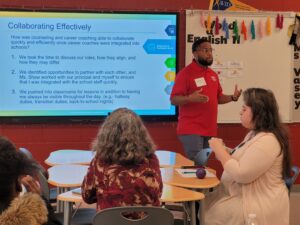
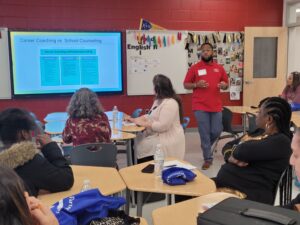
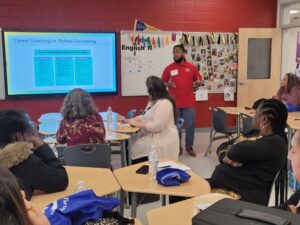
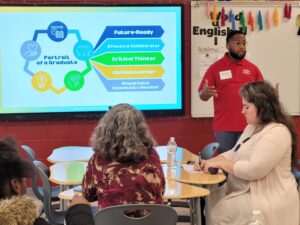
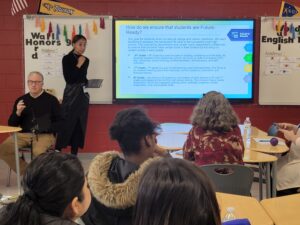
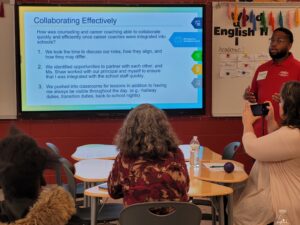
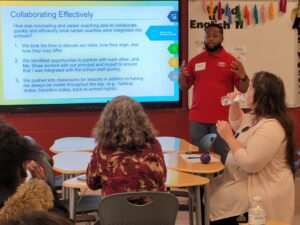
Families received Nathalie and Spencer’s presentation well, learning that school counseling delivers social-emotional lessons to ensure students understand themselves, the world, and how to make a positive impact; however, career coaching provides interest assessments, career exploration, and integrates life skills taught by school counselors.

